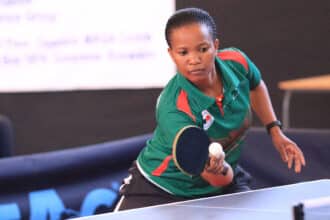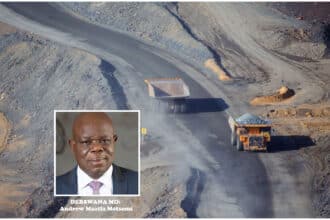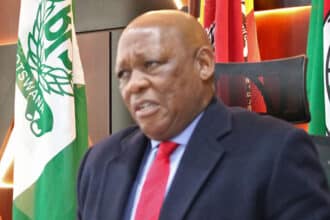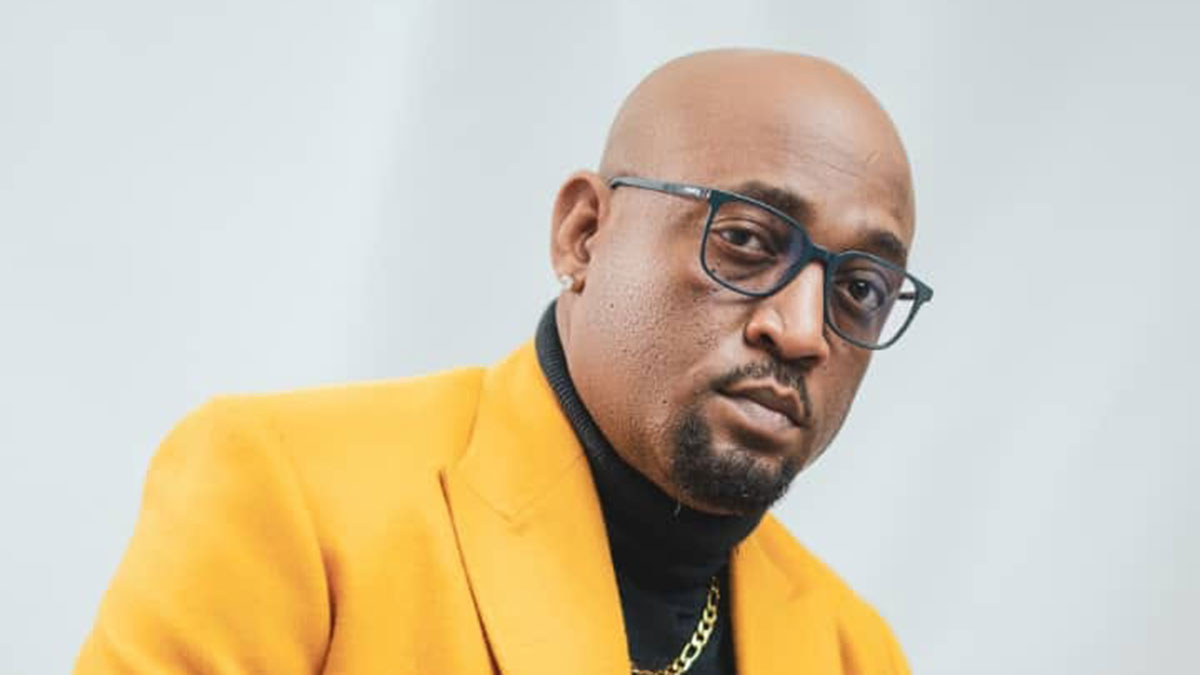The return of Fresh les as President
“Collaboration is key! We need to work together and support one another in order to grow our industry.”
Phemelo Fresh Lesokwane is the current President of the Botswana Musicians Union (BOMU).
The rhumba muso who has over 20 years experience in the music industry, is renowned for his role in advocating for local musicians’ welfare.
Since assuming his Presidency in 2020, his biggest campaign has been advocating for local songs to be accorded more airplay in radios.
In this feature, the BOMU President takes us back to his humble beginnings as an aspiring musician, to leading Botswana’s biggest musicians’ movement.
Thank you for your time, kindly please introduce yourself to our readers.
I am Phemelo Lesokwane, the current President of the Botswana Musicians Union.
Most people in the entertainment industry know me as Fresh Les or Fresh Lesokwane.
Take us through your upbringing, where you are from and the kind of family you grew up in.
I spent most of my childhood in Otse where my mother comes from.
We had a big close-knit family and we were well known in the village because my grandmother ran a shebeen.
Villagers would gather at our homestead drinking traditional beer and listening to good music because my uncle was a musician who enjoyed entertaining people.
How did your musical journey start?
My uncle was part of a band called The Big Marines.
I admired them a lot, so I decided to learn how to play the drums using paint cans and wooden sticks.
My love for music as well as the skills, grew and when I progressed to Senior School, I started my own band.
In that band, I was with the likes of Joel Keitumele, Thuto Galase and my brother Rutang Lesokwane.
I later joined the Big Marines and ended up sharing stages with Brenda Fassie and Lucky Dube just to name a few.
I ended up applying to the BDF and got posted under the BDF Band wing.
I worked there from 1999 until 2006, then I resigned to focus on my music career.
Why Rhumba/Kwasa Kwasa music?
During my time at BDF, I frequented a club called Zebras NightClub where I really got exposed to Rhumba music.
Also, my cousin Frank ‘Franco’ Lesokwane was into Rhumba music and I kind of got pulled into it.
While the fame was exciting, I wasn’t doing so well musically because of strict and unfavorable legislations in the music industry so in 2012 I decided to take a break from music.
The break was also meant for me to introspect and assess my music career and hopefully find a way to better myself and my craft.
I then started a business called Jazz Brew in Mochudi, it was an entertainment joint where people enjoyed good food and good Jazz music.
When you made a comeback, you returned as a Jazz artist. What inspired the transition?
It was definitely the business I went into during my break.
I think I fell in love with Jazz music because I was so exposed to it.
I returned to music as a Jazz artist in 2015.
The feedback from Batswana was amazing, and I even won a BOMU award for Best Jazz Artist.
I was really good, probably one of the most in demand Jazz artists in Botswana at the time.
I remember being offered a gig to host a show alongside Zahara at Botswana Craft.
Robbie Malinga wasn’t around to perform in one of their songs together so I had the opportunity to sing his part.
That experience will forever be engraved in my heart.
Despite how good it was going with Jazz, you still went back to Rhumba, how come?
Rhumba is what drew me to music so, while I was doing well as a Jazz artist, for the most part, I felt unfulfilled.
So, after thinking hard and long about it, I finally returned to Rhumba music last year with ‘The Return of Fresh Les’.
As always, Batswana have been really supportive and the feedback has been encouraging.
I am planning on dropping a single in the next two months.
I am back to my Rhumba roots, with a new feel to it and I hope they love the new Fresh.
As the BOMU President, what are your key responsibilities?
I am so honored and delighted that my fellow musicians have entrusted me to represent them and to speak on their behalf.
The organization’s main mandate is to give a voice to musicians across the country and my job is to oversee that.
You’re much known for being an advocate for the local music industry, tell us more about that passion of yours.
Having been in this industry for so long, I have seen and suffered a lot.
Unfortunately when I was starting off there weren’t many bodies which spoke on behalf of creatives so we suffered in silence.
I didn’t want those coming after me to also suffer, so I became very vocal about issues in the creative industry, especially music.
I am also very vocal about coverage of local musicians on local media platforms because they have the tools, spaces and audience to sell us more than we can on our own.
You have also fought for COSBOTS to take seriously the issue of royalties, how is that one going?
If I am being honest, when we launched the fight against COSBOTS, we went in blindly.
We didn’t really understand how royalties work, but they sought out to educate us and we learnt that the issue of royalties has more to do with radio stations.
COSBOTS has come onboard and is very active in trying to push for more airplay of local musicians.
Have you noted any significant increase in that coverage?
There is progress, but it’s not satisfactory.
Right now, I’d say local media is giving 40% of their space to locals and the rest to internationals.
I would really appreciate it if the numbers were reversed.
Our journalists need to document our works, not only to sell us, but to also preserve local craft.
Why do you think local promoters, radio and TV stations prioritize international music over local music?
Simply because that is what is being marketed in our local radio stations.
Promoters are in business and will headline events with whoever is known to be the most in demand.
Mention three talented artists who are underrated and need more attention according to you.
Sua Pan, Double Up and Dato Seiko.
These three are some of the most talented upcoming artists who need exposure because I feel they can really sell our country and industry.
Dato Seiko does get opportunities every now and then, but I feel more can be done.
What would you advise local musicians to do in order for Batswana to better appreciate their music?
Collaboration is key!
We need to work together and support one another in order to grow our industry.
Give us a picture of an average day in the life of the BOMU President.
It takes a lot of strength and heart to lead such an organisation.
My phone is always buzzing and I’m always in meetings having to handle industry related issues.
You become a mediator and counsellor as well, on top of being an activist.
What does the BOMU President do to unwind after a long week of work?
I am always so busy, when I do get time off from office work, you will find me tending to my business in Ramotswa.
I do like working out though, and riding my bicycle.
Finally, thank God it’s Friday, what will you be up to this weekend?
My anniversary and birthday are coming up this weekend, so I will be leaving for Cape Town to celebrate.





